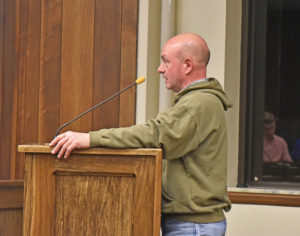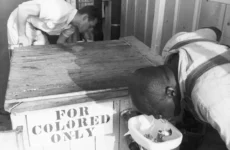North Tonawanda council looking at dog census, higher registration fees
By Joseph Kissel
A census for dogs?
North Tonawanda Common Council President Eric Zadzilka said on Tuesday he’d like to see a dog census take place as a first step to getting a handle on any toothy canine issues in the Lumber City.
The recent frigid temperatures produced some reports of dogs being kept outside, said NT inspector Rob Depaolo during Tuesday’s council workshop session.
Coupled with an “exceptionally low” dog registration rate in 2017, the city is considering ways to more effectively manage its dog population.
2,209 dogs are currently registered in the city, which had a population of 30,607 people in 2016.
New council member Austin Tylec said that number of dogs seemed low based just on experiences during the recent campaign when he visited around 2,500 houses all over the city.
“Every other house had a dog,” he said. “Sometimes I was terrified knocking on some of them.”
Luckily, only one recorded dog attack took place in the city during 2017, said Mr. Depaolo.

Rob Depaolo, who works in the city’s inspection department, addressed the board about issues regarding the city’s dog population. The official number of registered dogs is 2,209, which seems low to city officials. Council President Eric Zadzilka suggested a dog census as a first step to addressing and possibly re-vamping some of the city’s dog laws.
So from a public safety perspective, there doesn’t seem to be a great need for a dog census.
In general, libertarians oppose the federal census because of the “nosy” questions that go beyond the simple determination of population to create congressional districts.
There was no discussion of what questions might be included on a North Tonawanda dog census or how it would be conducted.
The number of dogs and where they are located could have some impact on the location of a talked-about city dog park proposed by Mr. Tylec.
When the Town of Tonawanda conducted a dog census in 2016 police knocked on doors and residents with unlicensed dogs were given 15 days to do so.
The doggie discussion on Tuesday also included registration fees. At $7 per dog, North Tonawanda has the lowest fee in all of Western New York, Mr. Depaolo said.
There is no limit on the number of dogs an owner can keep.
Mr. Depaolo said from an enforcement standpoint, the city generally does not want to get involved with dog owners unless there’s a safety or noise violation, which constitutes 30 minutes of continuous barking outside.
Dogs being left out in frigid temperatures “we can’t really restrict that,” Mr. Depaolo said, pointing out dogs were often left out or lived outside during past generations.
Now they’re like family or children to some people, Mr. Depaolo said.
“Most of us are dog lovers,” said Mr. Zadzilka.
As for the timeline as to finalizing and implementing some of these proposals. “We are in the infancy of looking at this,” he said.



















